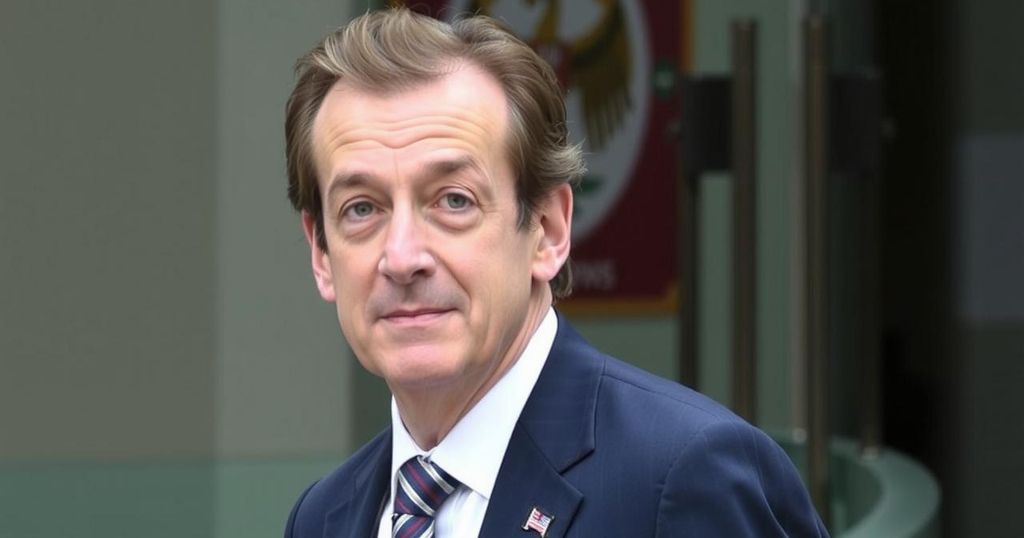Former French President Nicolas Sarkozy is on trial for allegedly accepting millions from Libyan leader Muammar Gaddafi to fund his 2007 election campaign, with claims he promised to help improve Gaddafi’s reputation. Sarkozy denies the charges, attributing them to politically motivated attacks. The trial includes twelve co-defendants and is set to run until April 10, with the possibility of Sarkozy facing up to ten years in prison if convicted.
Nicolas Sarkozy, the former President of France, has commenced trial proceedings in Paris facing allegations of receiving illicit financial support from the late Libyan leader Muammar Gaddafi for his 2007 electoral campaign. Prosecutors assert that in return for these funds, Sarkozy pledged assistance to Gaddafi in rehabilitating his image in the West. Sarkozy, now aged 69, has repeatedly denied these accusations, suggesting that they are politically motivated attacks against him.
The investigation originated in 2013, prompted by claims from Saif al-Islam, Gaddafi’s son, alleging that Sarkozy had accepted substantial sums from his father. Subsequently, in a twist, Ziad Takieddine, a Lebanese businessman serving as an intermediary between France and the Middle East, came forth with what he claimed was written evidence of Gaddafi’s funding of Sarkozy’s campaign that allegedly continued even after Sarkozy ascended to the presidency.
Alongside Sarkozy, twelve other defendants are on trial, accused of conspiring with Gaddafi. All of them maintain their innocence regarding the charges. Additionally, Sarkozy’s wife, Carla Bruni-Sarkozy, was implicated in the case for allegedly concealing evidence and colluding to commit fraud, charges which she also denies.
Since losing his bid for re-election in 2012, Sarkozy has faced multiple investigations. He has appealed against prior rulings, including a conviction for overspending during his 2012 campaign. In 2021, he became the first former French president to be incarcerated for attempting to bribe a judge, although he can serve his sentence at home with an ankle monitor, details of which are still pending.
The ongoing trial is set to last until April 10, and if convicted, Sarkozy may face a maximum sentence of ten years in prison. At the trial’s opening, he was not wearing the ankle monitor, as the logistical arrangements for his sentence have yet to be finalized.
The trial of Nicolas Sarkozy is a significant legal event in France, as it involves serious allegations regarding corruption and illicit campaign financing. The case underscores the intertwining of politics and legal accountability in France, particularly against the backdrop of Sarkozy’s administration. This trial arises from accusations that link foreign funds from Gaddafi to Sarkozy’s electoral success. It also reflects broader themes concerning political integrity and the consequences of alleged financial misconduct in political campaigns, highlighting the complexities of monitoring state leaders’ ethical obligations during their tenure and beyond.
In conclusion, Nicolas Sarkozy’s trial over alleged Gaddafi election funding marks a critical juncture in the intersection of politics and law in France, as he and several co-defendants face serious charges that could lead to significant prison time. Sarkozy’s longstanding denial of the allegations and his ongoing appeals against previous convictions reveal a contentious legal battle that reflects both his personal challenges and broader discussions regarding political corruption accountability. The outcome of this trial could have lasting implications for Sarkozy’s legacy and for political integrity in France.
Original Source: www.bbc.com






